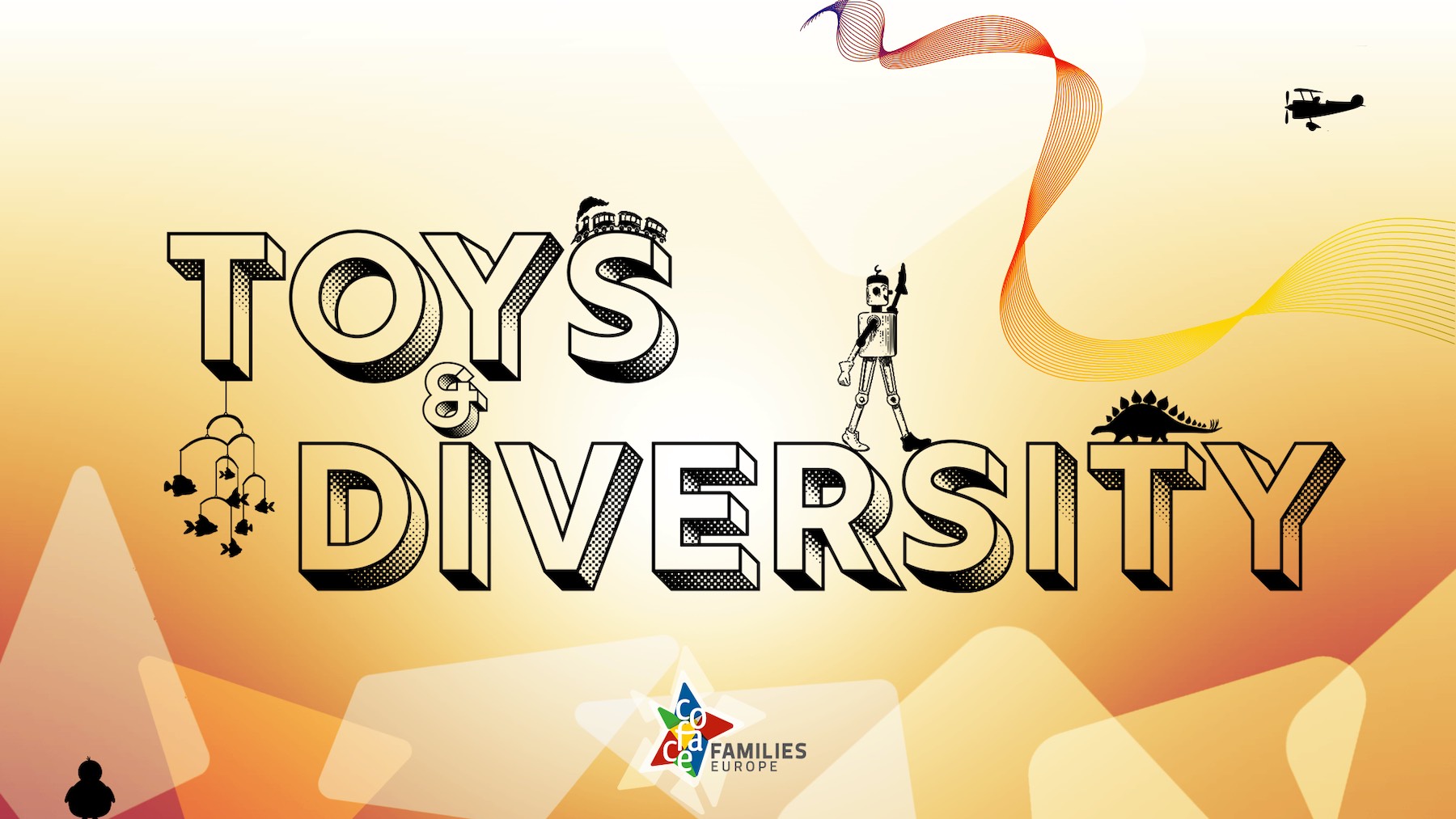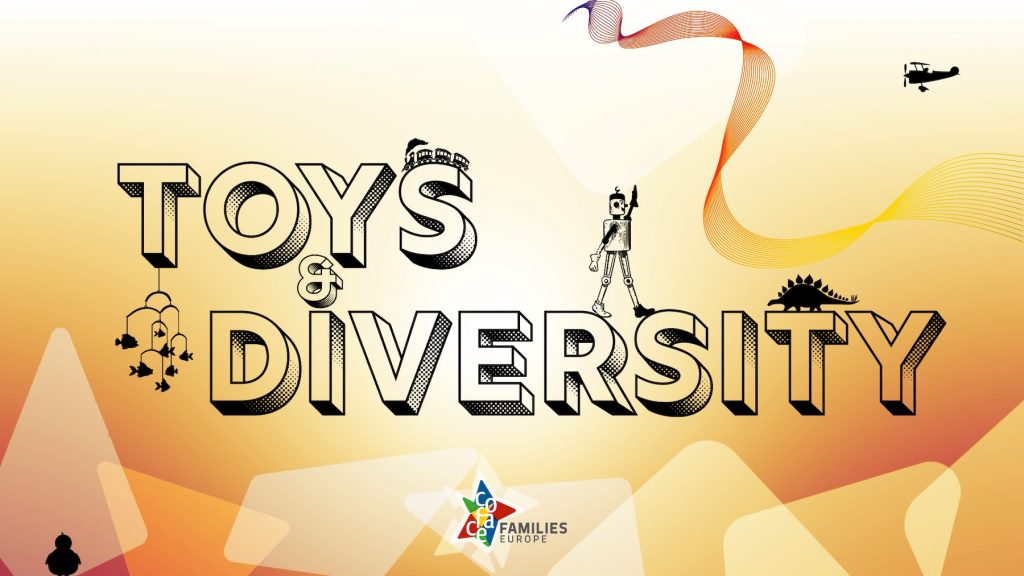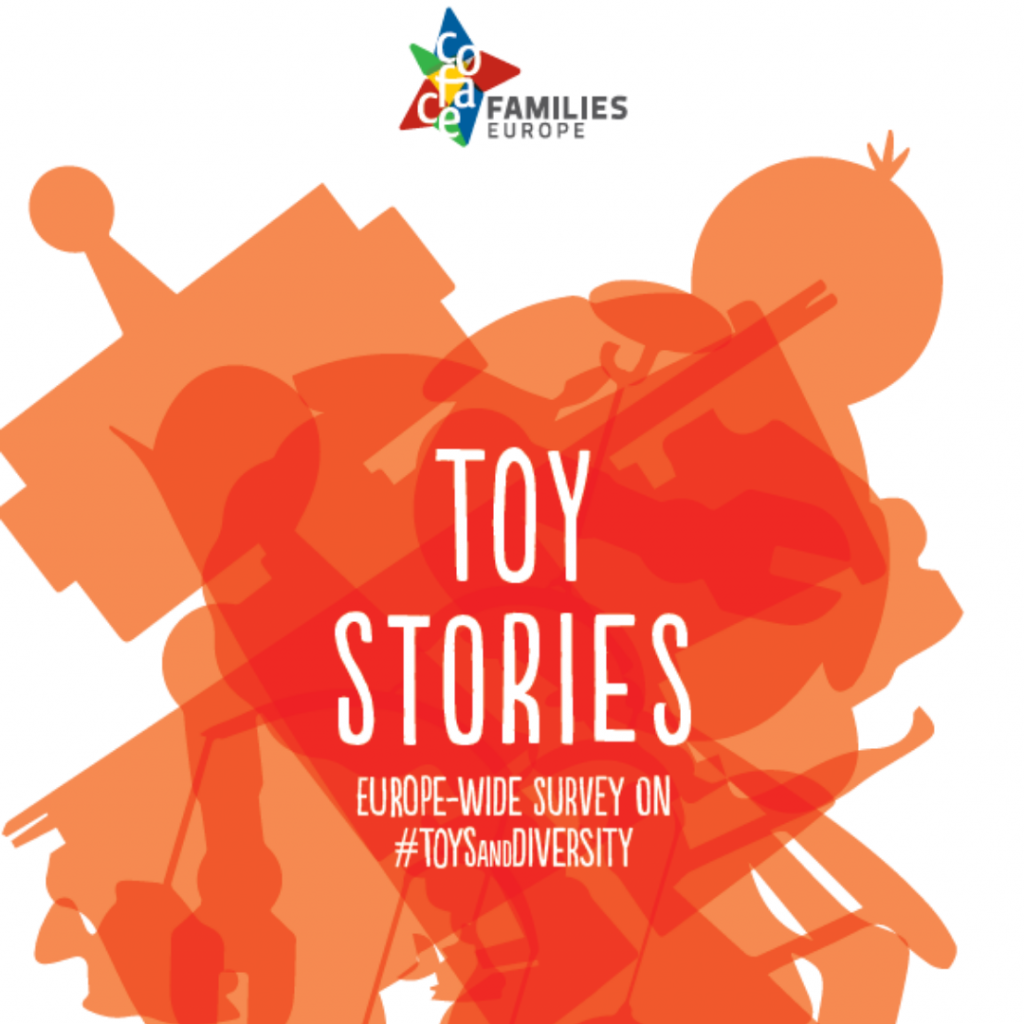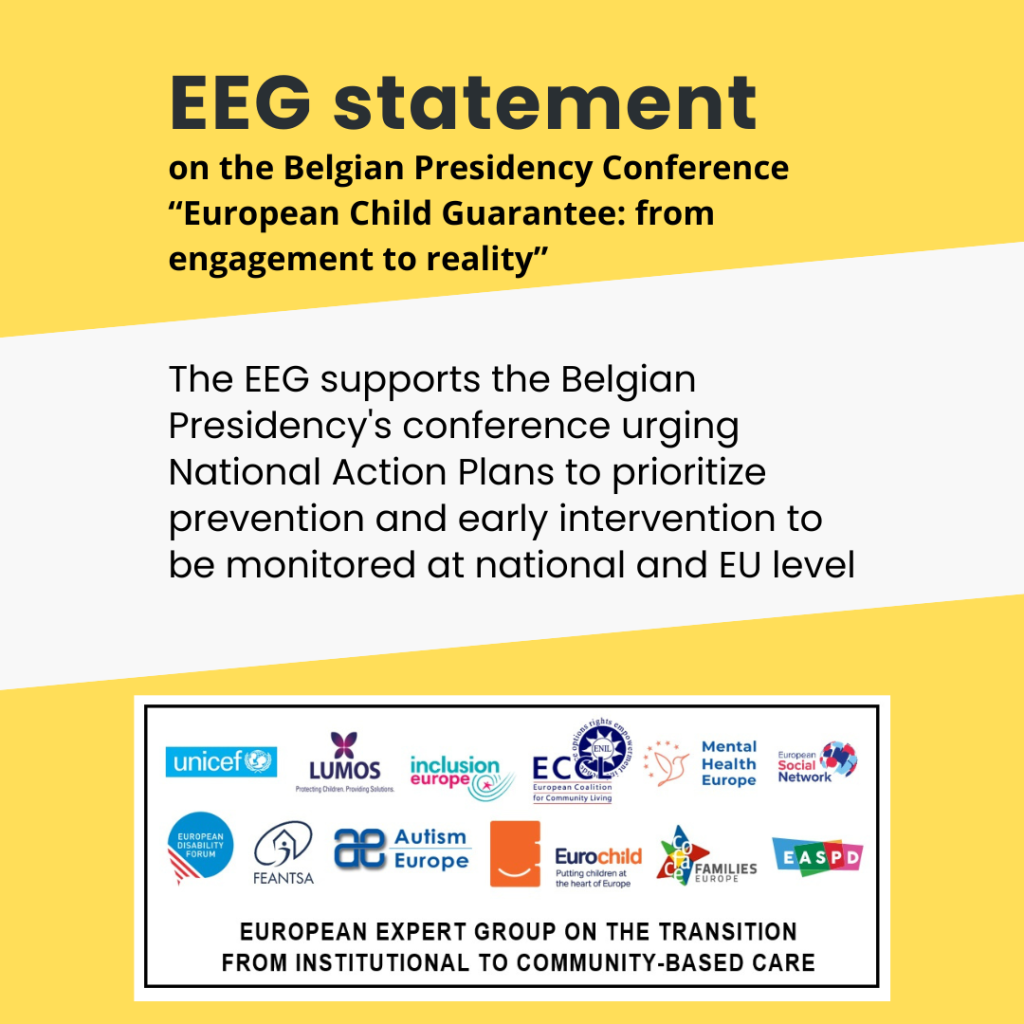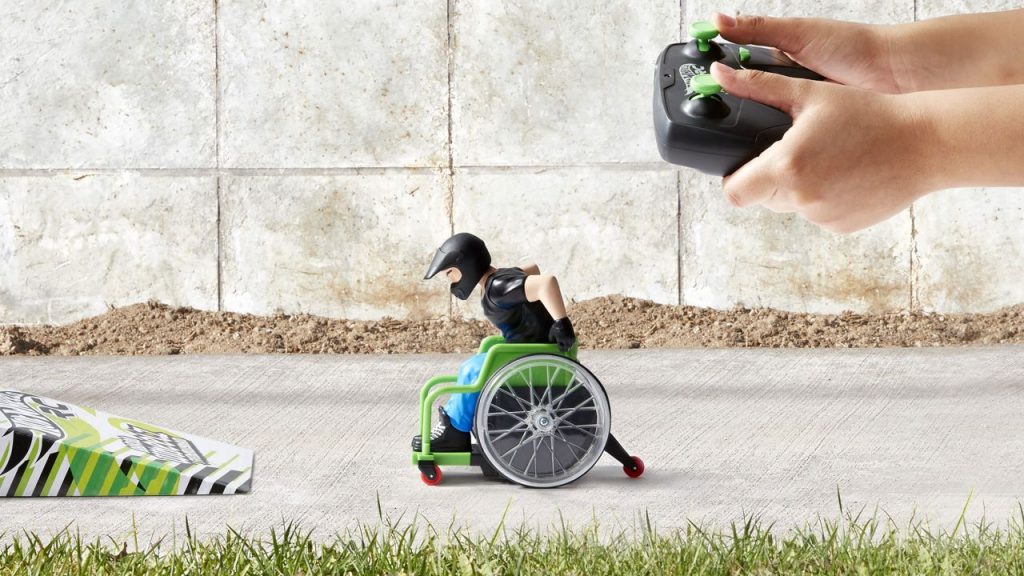Since 2016 when COFACE Families Europe published a European study of toy catalogues “Making or breaking stereotypes?”, we published 6 Toys & Diversity principles and have run a social media campaign on #ToysandDiversity as part of our work to promote equal opportunities and diversity. The campaign highlights gender, disability and racial stereotypes in toy production, catalogues and shops, and raises awareness among toy producers, advertisers, retailers and consumers about the need for toy diversity. It highlights the importance of letting children decide what to play with for their creativity, imagination, learning development and fun. This means not limiting children’s choices of which toys to play with by imposing on them predefined and stereotyped categories.
As every year in the pre-Christmas period, we trigger a social media campaign wave. 2016 was about stereotype hunting, 2017 was about stereotype boycotting, 2018 provided checklists to think critically when buying toys, 2019 focused on launching the “Toy stories” survey, and 2020 highlighted some of the toy stories gathered from across Europe.
Key #ToysandDiversity principles
On the basis of our study of Toy catalogues across 9 countries conducted in 2016, COFACE Families Europe developed six key principles with a view to raising awareness of our key concerns in relation to toy marketing and advertising. The headline principles are the following:
- Let children decide what they want to play with: No more division into boys and girls sections.
- Do not channel children into stereotyped professions and life patterns: Let them play to be whomever they want to be.
- Join your voice to end gender-based violence and bullying: promote non-violent images and behaviours.
- Represent families in their diversity.
- Children with disabilities play too: stop their invisibility and include them in the toy world.
- Children with a diverse racial background: let’s move to a fair representation.
More information about our 6 key principles
On this #WorldChildrensDay COFACE Families Europe is launching “Toy stories”, the first Europe-wide survey on #ToysandDiversity, highlighting the need to give children the space to play for full creativity, imagination, learning development and fun.
👉 https://t.co/6XCa9Jivfk pic.twitter.com/9OsNP6SrHh— FAMILIES EUROPE (@COFACE_EU) November 20, 2019
#ToysAndDiversity
Since 2016 when COFACE Families Europe published a European study of toy catalogues “Making or breaking stereotypes?”, we published 6 Toys & Diversity principles, and carried out various annual awareness-raising activities.
A critical view of the world of toy catalogues – Six key principles
These six principles offer a critical view of the world of toy catalogues, informing of potential risks and concerns among parents and families.
Toy stories study
“Toy Stories”, the first Europe-wide survey on Toys and Diversity, developed and translated by COFACE members into 13 languages.


